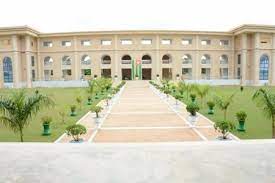APA-Lomé (Togo) – Political tensions have increased in Togo since the adoption of a new parliamentary constitution that marks the country’s transition from a presidential to a parliamentary system.
At a press conference held at the headquarters of the Togolese Party (PT) in the capital, Lomé, on Wednesday, Togo’s main opposition parties expressed their firm determination to oppose the new constitution, which was adopted in mid-April.
“Despite strong protests from the population, civil society organizations and the opposition, the country’s leaders have remained inflexible. They wanted their constitution, they wrote it, they voted on it and they promulgated it. Let it remain theirs,” the organizers said in a statement at the end of the conference.
On May 6, President Faure Gnassingbé promulgated the new constitution that MPs had approved on second reading on April 19, thus ensuring that he would remain in power following the landslide victory of his party, the Union for the Republic (UNIR), in the April 29 legislative and regional elections.
Under the provisions of this constitutional reform, power will now be in the hands of a President of the Council of Ministers, who will automatically be the leader of the majority party in the National Assembly. This position is currently held by Faure Gnassingbé, president of UNIR.
“We must resist by waging a civil struggle, a struggle for liberation,” the opposition parties declared. “In this regard, we call on all Togolese, whatever their sector of activity or social status, whether they are in the administration or not, whether they are civilians or not, to be concerned, to mobilize and to play their role as citizens wherever they are,” they added.
Street demonstrations have been banned in Togo since 2022, following an attack on the main market in Lomé in which a gendarme was killed.
Two days of demonstrations planned by the opposition and civil society groups on April 12 and 13 to protest the new constitution did not take place as members of the opposition were prevented from gathering by law enforcement.
Political tensions have been rising in Togo since the adoption of the new parliamentary constitution, which marks the country’s transition from a presidential to a parliamentary system. Faure Gnassingbé became president of Togo in 2005, succeeding his father, Eyadema Gnassingbé, who had been in power for nearly 38 years.
APA/AFP


